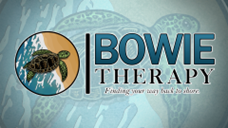Navigating the Abyss: Adult Therapy for Depression and Job-Related Stress

In the tumultuous landscape of adulthood, the intersection of depression and job-related stress can create a perfect storm, overwhelming even the most resilient individuals. Acknowledging the symbiotic relationship between mental health and professional life is the first step towards finding a path to healing. In this exploration, we delve into the complexities of adult therapy, specifically addressing the pervasive challenges of depression and job-related stress.
The Silent Struggle: Depression in the Professional Realm
For many adults, the workplace is not only a source of livelihood but also a significant component of their identity. When depression casts its shadow, it infiltrates the very fabric of daily life, making the demands of a job feel insurmountable. Adult therapy provides a safe space for individuals to confront the silent struggle of balancing professional responsibilities with the weight of depression, unraveling the intricate layers of emotion and thought that contribute to their internal turmoil.
Job-Related Stress: The Tug of War
In the relentless pursuit of success, job-related stress becomes an uninvited companion for many adults. The pressures of deadlines, competition, and expectations can tip the scales, leading to burnout and a decline in mental well-being. Adult therapy addresses the unique stressors embedded in the professional realm, helping individuals develop coping mechanisms, set boundaries, and explore strategies to find balance amid the demands of their careers.
Identifying the Roots: Exploring the Connection
Depression and job-related stress often share common roots, with one feeding into the other in a vicious cycle. Adult therapy involves a process of introspection to identify the underlying causes of both conditions. Whether it’s unresolved trauma, unfulfilling work environments, or the cumulative impact of prolonged stress, understanding these roots is crucial for developing targeted therapeutic interventions.
Cognitive Behavioral Therapy (CBT): Restructuring Negative Thought Patterns
Cognitive Behavioral Therapy (CBT) is a cornerstone of adult therapy for depression and job-related stress. It focuses on restructuring negative thought patterns and behaviors, offering individuals practical tools to challenge and change their cognitive distortions. Through CBT, adults can learn to manage stressors more effectively, break the cycle of self-defeating thoughts, and cultivate a more resilient mindset.
Mindfulness and Stress Reduction Techniques:
Mindfulness practices play a pivotal role in adult therapy, offering individuals the tools to anchor themselves in the present moment. These techniques, coupled with stress reduction strategies, empower individuals to navigate the challenges of the workplace with greater equanimity. By fostering self-awareness and promoting relaxation, mindfulness becomes a powerful ally in the battle against both depression and job-related stress.
Work-Life Integration: Finding Balance
Achieving a harmonious work-life balance is a key objective in adult therapy for depression and job-related stress. Therapists collaborate with individuals to explore practical strategies for setting boundaries, managing workload, and incorporating self-care into their daily routines. The goal is not just to survive the demands of the professional realm but to thrive in both personal and career domains.
Building a Support System: Beyond the Therapy Room
Adult therapy extends beyond the confines of the therapy room, emphasizing the importance of building a robust support system. Therapists work with individuals to identify and nurture connections with friends, family, and colleagues who can provide emotional support and understanding. These relationships become pillars of strength, reinforcing the individual’s resilience in the face of life’s challenges.
In the labyrinth of adult life, where the threads of depression and job-related stress can become entwined, therapy becomes a guiding light. Through a combination of self-exploration, targeted therapeutic approaches like CBT, mindfulness practices, and a focus on work-life integration, individuals can navigate the abyss towards healing and resilience. Adult therapy is not just a refuge for the overwhelmed; it is a transformative journey towards reclaiming joy, purpose, and mental well-being in the complex tapestry of adulthood.
Navigating the Abyss: Adult Therapy for Depression and Job-Related Stress

In the tumultuous landscape of adulthood, the intersection of depression and job-related stress can create a perfect storm, overwhelming even the most resilient individuals. Acknowledging the symbiotic relationship between mental health and professional life is the first step towards finding a path to healing. In this exploration, we delve into the complexities of adult therapy, specifically addressing the pervasive challenges of depression and job-related stress.
The Silent Struggle: Depression in the Professional Realm
For many adults, the workplace is not only a source of livelihood but also a significant component of their identity. When depression casts its shadow, it infiltrates the very fabric of daily life, making the demands of a job feel insurmountable. Adult therapy provides a safe space for individuals to confront the silent struggle of balancing professional responsibilities with the weight of depression, unraveling the intricate layers of emotion and thought that contribute to their internal turmoil.
Job-Related Stress: The Tug of War
In the relentless pursuit of success, job-related stress becomes an uninvited companion for many adults. The pressures of deadlines, competition, and expectations can tip the scales, leading to burnout and a decline in mental well-being. Adult therapy addresses the unique stressors embedded in the professional realm, helping individuals develop coping mechanisms, set boundaries, and explore strategies to find balance amid the demands of their careers.
Identifying the Roots: Exploring the Connection
Depression and job-related stress often share common roots, with one feeding into the other in a vicious cycle. Adult therapy involves a process of introspection to identify the underlying causes of both conditions. Whether it’s unresolved trauma, unfulfilling work environments, or the cumulative impact of prolonged stress, understanding these roots is crucial for developing targeted therapeutic interventions.
Cognitive Behavioral Therapy (CBT): Restructuring Negative Thought Patterns
Cognitive Behavioral Therapy (CBT) is a cornerstone of adult therapy for depression and job-related stress. It focuses on restructuring negative thought patterns and behaviors, offering individuals practical tools to challenge and change their cognitive distortions. Through CBT, adults can learn to manage stressors more effectively, break the cycle of self-defeating thoughts, and cultivate a more resilient mindset.
Mindfulness and Stress Reduction Techniques:
Mindfulness practices play a pivotal role in adult therapy, offering individuals the tools to anchor themselves in the present moment. These techniques, coupled with stress reduction strategies, empower individuals to navigate the challenges of the workplace with greater equanimity. By fostering self-awareness and promoting relaxation, mindfulness becomes a powerful ally in the battle against both depression and job-related stress.
Work-Life Integration: Finding Balance
Achieving a harmonious work-life balance is a key objective in adult therapy for depression and job-related stress. Therapists collaborate with individuals to explore practical strategies for setting boundaries, managing workload, and incorporating self-care into their daily routines. The goal is not just to survive the demands of the professional realm but to thrive in both personal and career domains.
Building a Support System: Beyond the Therapy Room
Adult therapy extends beyond the confines of the therapy room, emphasizing the importance of building a robust support system. Therapists work with individuals to identify and nurture connections with friends, family, and colleagues who can provide emotional support and understanding. These relationships become pillars of strength, reinforcing the individual’s resilience in the face of life’s challenges.
In the labyrinth of adult life, where the threads of depression and job-related stress can become entwined, therapy becomes a guiding light. Through a combination of self-exploration, targeted therapeutic approaches like CBT, mindfulness practices, and a focus on work-life integration, individuals can navigate the abyss towards healing and resilience. Adult therapy is not just a refuge for the overwhelmed; it is a transformative journey towards reclaiming joy, purpose, and mental well-being in the complex tapestry of adulthood.
